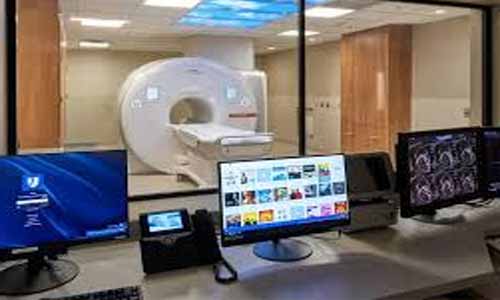- Home
- Editorial
- News
- Practice Guidelines
- Anesthesiology Guidelines
- Cancer Guidelines
- Cardiac Sciences Guidelines
- Critical Care Guidelines
- Dentistry Guidelines
- Dermatology Guidelines
- Diabetes and Endo Guidelines
- Diagnostics Guidelines
- ENT Guidelines
- Featured Practice Guidelines
- Gastroenterology Guidelines
- Geriatrics Guidelines
- Medicine Guidelines
- Nephrology Guidelines
- Neurosciences Guidelines
- Obs and Gynae Guidelines
- Ophthalmology Guidelines
- Orthopaedics Guidelines
- Paediatrics Guidelines
- Psychiatry Guidelines
- Pulmonology Guidelines
- Radiology Guidelines
- Surgery Guidelines
- Urology Guidelines
MRI may predict intelligence level and brain development in children

The results of the study helped find the correlation between the child's "fluid intelligence" and brain anatomy.
Russia: A group of researchers from Skoltech for the first time used ensemble methods based on deep learning 3D networks to find whether Magnetic resonance imaging can predict intelligence levels in children. The study, launched in 2013 by the US National Institutes of Health (NIH), is the first grand-scale study of its kind in adolescent brain research, Adolescent Brain Cognitive Development (ABCD). It determined if and how teenager's hobbies and habits affect their further brain development.
The researchers from the Skoltech Center for Computational and Data-Intensive Science and Engineering (CDISE) discovered this while taking part in the international Magnetic resonance imaging-based adolescent intelligence prediction competition. The study is published in the journal Adolescent Brain Cognitive Development Neurocognitive Prediction.
Magnetic resonance imaging (MRI) is a common medical imaging technique used to obtain images of human internal organs and tissues through the use of a powerful magnetic field, radio waves and a computer. Scientists wondered whether the intelligence level can be predicted from a Magnetic resonance imaging brain image. The NIH database contains a total of over 11,000 structural and functional MRI images of children aged 9-10.
NIH scientists launched an international competition, making the enormous NIH database available to a broad community for the first time. The participants were given the task of building a predictive model based on brain images. As part of the competition, the Skoltech team applied neural networks for MRI image processing. To do this, they built a network architecture enabling several mathematical models to be applied to the same data to increase prediction accuracy and used a novel ensemble method to analyze the MRI data.
In their recent study, Skoltech researchers focused on predicting the intelligence level, or the so-called "fluid intelligence", which characterizes the biological abilities of the nervous system and has little to do with acquired knowledge or skills. Importantly, they made predictions for both the fluid intelligence level and the target variable independent from age, gender, brain size or MRI scanner used.
"Our team develops deep learning methods for computer vision tasks in MRI data analysis, amongst other things. In this study, we applied ensembles of classifiers to 3D of super precision neural networks: with this approach, one can classify an image as it is, without first reducing its dimension and, therefore, without losing valuable information," explains CDISE PhD student, Ekaterina Kondratyeva.
The results of the study helped find the correlation between the child's "fluid intelligence" and brain anatomy. Although the prediction accuracy is less than perfect, the models produced during this competition will help shed light on various aspects of cognitive, social, emotional and physical development of adolescents. This line of research will continue to expand.
The study, "Ensemble of 3D CNN Regressors with Data Fusion for Fluid Intelligence Prediction," is published in the journal Adolescent Brain Cognitive Development Neurocognitive Prediction.

Disclaimer: This site is primarily intended for healthcare professionals. Any content/information on this website does not replace the advice of medical and/or health professionals and should not be construed as medical/diagnostic advice/endorsement or prescription. Use of this site is subject to our terms of use, privacy policy, advertisement policy. © 2020 Minerva Medical Treatment Pvt Ltd